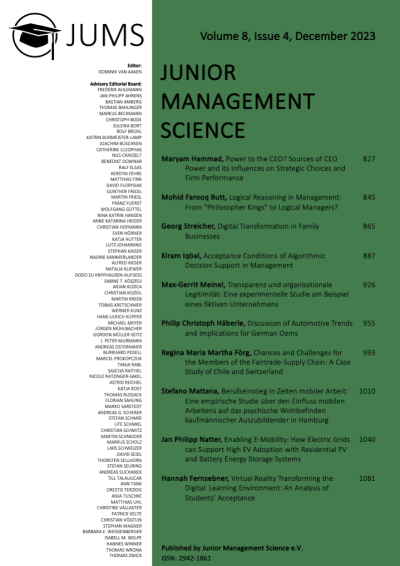Abstract
In this paper it was empirically reviewed, if a high level of corporate transparency leads to an increase in companies’ organizational legitimacy. Through an experimental design, individually perceived organizational legitimacy was measured based on Suchman’s (1995, S. 578–579) definition of pragmatic, moral, and cognitive legitimacy. For this purpose, the experimental group (n = 108) received a stimulus indicating high transparency while the control group (n = 112) was presented with a very limited amount of information indicating low transparency for a fictitious airline. The experimental stimulus consisted of legitimacy sources such as media reports, rankings, surveys, and internal press reports. The empirical results only suggest an increase in moral legitimacy for the experimental group. Nevertheless, organizational legitimacy decreases less for the experimental group compared to the control group. Also, the processing time of the transparency offer documents presented had no effect on the level of organizational legitimacy. Although a quantitatively high transparency offer has stronger effect on organizational legitimacy than a quantitatively low transparency offer, it cannot be assumed that transparency has a fundamentally legitimacy-enhancing effect. Moreover, the mere availability of information seems to play a greater role than its processing time.
Keywords: Transparency; Organizational legitimacy; Airlines; Corporate governance; Experiment.

This work is licensed under a Creative Commons Attribution 4.0 International License.
Copyright (c) 2023 Max-Gerrit Meinel

